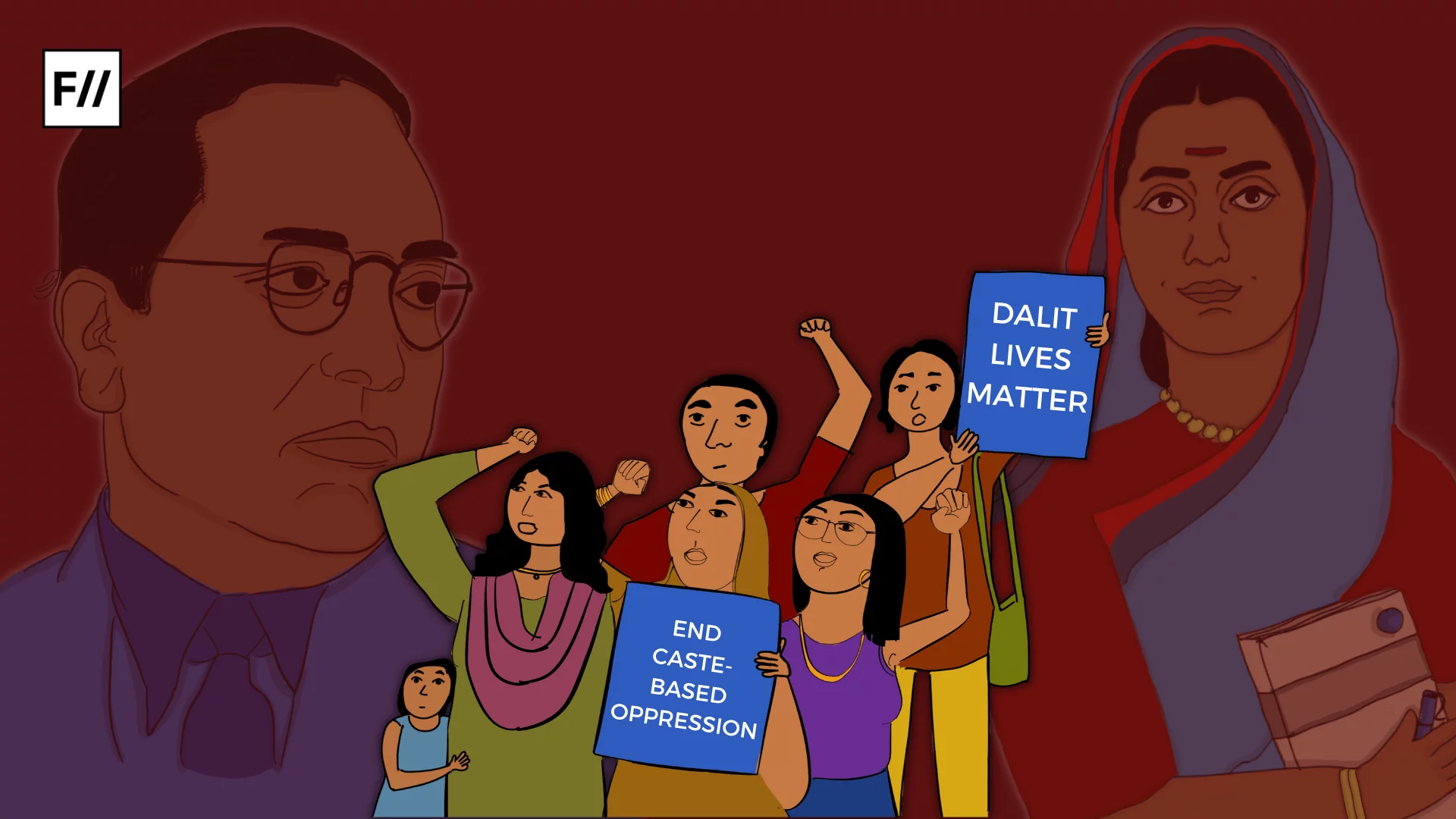NALSAR University of Law is often thought to be the second-best law school in India. As every government educational institute, there exists caste-based reservation for admission in the college. Despite this, the college chooses to remain oblivious to the concerns of most of the reserved category students. The college was recently rocked by a case of caste-based violence and forced into an admission that the caste problem does exist on campus.
The event that transpired in college happened with the LLM batch of 2018. It all started when a Dalit LLM student distributed sweets to his class and hostel mates on the occasion of Ambedkar Jayanti. Two days later, one of the highlights of every NALSAR academic year took place – the daaru party.
It is a party that the outgoing LLB batch throws for everyone on campus. On the night of the party, the events that transpired would be vivid in the memory of NALSAR for a long time to come. An upper caste LLM student got really drunk and then went back to his hostel, straight to the room of the LLM student who had distributed sweets on Ambedkar Jayanti and shut his laptop down for not attending the daaru party and doing his final LLM presentation work instead; the deadline for which was two days after the date of the party.
He then threatened and attempted to beat up the Dalit student after showering casteist slurs on him. But thankfully, the Dalit student was saved by multiple others who were present in the room. These people also happened to be the first group of people in NALSAR to witness an act of caste-based violence on campus.
A Dalit student collective, (of which the author was a part of and thus his knowledge of all the events that had transpired before and after) then got together and lodged a complaint with the college’s SC/ST Cell and the teacher in charge had assured these students that strict action will be taken against the culprit within seven days, as is procedure. The Vice-Chancellor had also assured the same.
there is only one professor from the SC/ST community.
Thus, hopes of punishment, in this case, were high as there were witnesses to the incident and this being the first such instance of violence against a member of the Dalit community, people expected the administration to crack down hard on the culprit. But eleven days after lodging the complaint, four days after the expiry of the final date of the order, the student representative to the SC/ST Cell’s Inquiry Committee on campus had resigned from her post due to the committee’s inaction.
In her own words she says, “I have resigned from the inquiry committee since I could see no culture of “sensitivity and sensibility” towards the question of “caste” and “casteism”. Hence I felt sitting in the inquiry committee would only validate such insensitive quorum. Therefore I withdrew”.
Thus, there was no ‘strict’ punishment that was meted out. There was. in fact, no punishment at all. The Dalit community then decided that nothing much can be expected from the casteist individuals who had to deal with a caste-based act of violence in an elitist college and thus took to social media in hope that someone will hear them and help them build up a strong counterveiling power to force the administration into action.
I feel proud today that I can claim that the strategy of a handful of marginalized students worked beautifully and forced the administration into action. The posts went viral with ex-professors, professors, ex-students and students responding in support for the cause.
Also Read: Forced Silence And Subversion In Educational Institutions
On the very next day, when a representation of students appeared in front of the Vice Chancellor of the college, little was expected and the fight for justice seemed to be long. But thanks to all the support and power gathered by the students of the Dalit community, he very gracefully, albeit with initial reluctance, agreed to concede to every demand made by the victim as well as the students of the Dalit community.
Though, a major victory for the Dalit community in NALSAR University of Law, the fight for the SC/ST students in NALSAR to find their space is going to be long and arduous. Many institutionalized discriminatory practices exist on campus. These need to be talked about first and ensured that they are weeded out.
The college, funded by UGC, has an SC/ST Cell. The SC/ST Cell is supposed to help the students of marginalized classes fit in better in college. By law, the SC/ST cell should comprise of members only from the SC/ST community. But this cannot happen in NALSAR as there is only one professor from the SC/ST community.
This is a major violation of the reservation policy that the centre has for teachers. There is a reservation amounting to 15% of teachers from the SC background and 7.5% of teachers from the ST background. But in its illustrious eighteen years of functioning, never has this reservation policy been followed and thus that makes the SC/ST Cell as well as the SC/ST community weak in college as there is no backing.
The daily wage workers do not even have the option to buy lunch and eat in the mess.
The caste problem does not end here. If you dig a little deeper into everyday NALSAR life, then you realize caste discrimination is as common as sexism on campus. The boys’ locker room talk in hostels is almost always accompanied by casual talk about how an SC or an ST is doing so well in college academically. If you do well, you are inevitably met by comments like “how you” which obviously comes with the tone of “how you and not me?” Casual casteist comments are supposed to be ignored otherwise you are termed uptight.
The problem flows into the lives of the daily workers in NALSAR as well. All the cleaners and maintenance staff in college come from SC/ST backgrounds. They are not allowed to have food in the mess with the teaching and non-teaching staff. The guards and mess workers on campus who hail from higher castes are also not allowed to eat in the mess.
This is a caste-based problem. The daily wage workers do not even have the option to buy lunch and eat in the mess. In a conversation with one of the women workers, the author was informed as to how they not only cannot get food in the mess but are also sometimes met with misbehaviour from the mess employees when they go to fill water from the mess coolers.
Thus, despite the major victory that the marginalized communities in NALSAR recently achieved, there remain several institutionalized practices in the college that need to be immediately done away with to make NALSAR a more inclusive space. There is a long way to go for the struggle for space in NALSAR, but the winds of change have blown after students started speaking up.
Maybe the recruitment of SC/ST teachers would be a major step forward. All we can hope for is to keep our fingers crossed and see more SC/ST professors on campus come June when the new session begins. And hope for a better and more inclusive NALSAR.
Also Read: Law School And The Myth Of Neutrality
Featured Image Credit: The Indian Express




